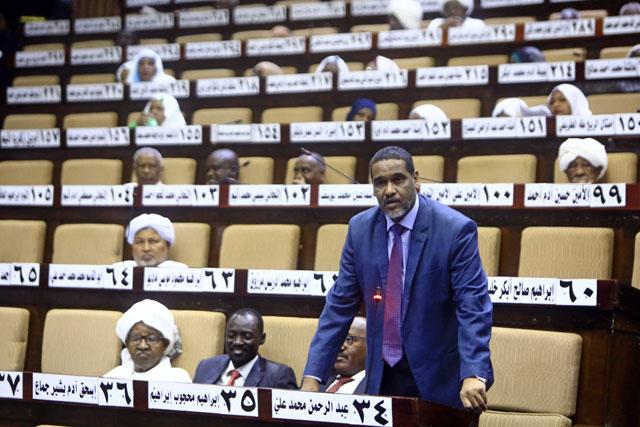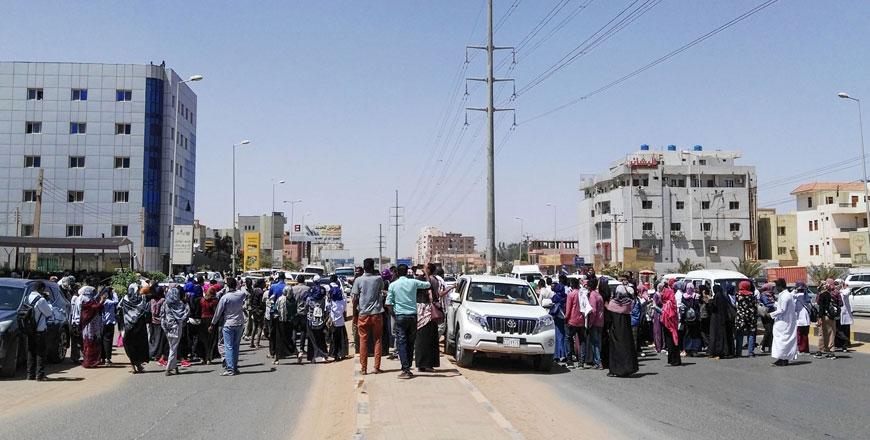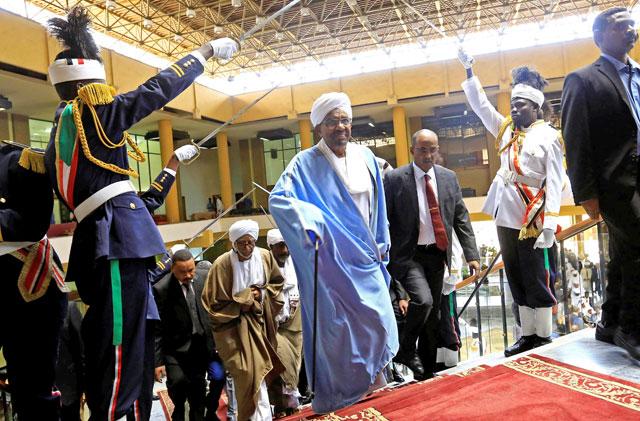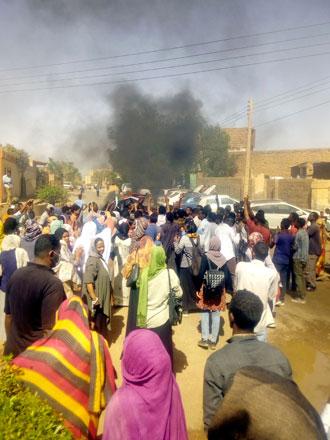You are here
Sudan parliament cuts state of emergency to six months
By AFP - Mar 11,2019 - Last updated at Mar 11,2019

A Sudanese parliament member speaks during a National Assembly emergency session discussing a state of emergency declared by the president following anti-government protests, on Monday (AFP photo)
KHARTOUM — Sudan's Parliament on Monday approved a nationwide state of emergency of six months instead of one year as ordered by President Omar Al Bashir to quell protests against his iron-fisted rule.
Bashir declared a year-long state of emergency from February 22 after an initial crackdown failed to suppress the demonstrations that have rocked his administration for nearly three months.
"A six-month state of emergency has been approved by a majority," the speaker of Parliament Ibrahim Ahmed Omer said after lawmakers voted on the presidential decree.
Deadly protests erupted on December 19 after a government decision to triple the price of bread.
The demonstrations quickly escalated into nationwide rallies against Bashir's administration, with analysts calling it the biggest challenge to his rule stretching back three decades.
Officials say 31 people have died in protest-related violence so far, while Human Rights Watch has given a death toll of at least 51 including medics and children.
Monday's vote by lawmakers backed a recommendation from a parliamentary committee to shorten the state of emergency to six months.
Activists and rights groups have slammed the measure as curbing freedoms in the country.
"The Parliament didn't want to reject Bashir's decree, so it came out with a compromise by keeping the state of emergency for six months," said prominent Sudanese human rights defender Nabil Adib.
"But to me it's not about six months or one year. The measure violates human rights that are permitted in the Sudanese constitution.
Sudan's Minister of Justice Mohamed Ahmed Salim defended the state of emergency in parliament, which is overwhelmingly dominated by lawmakers from the ruling National Congress Party.
"What we have is a soft state of emergency and still people are complaining," he said.
Protesters jailed
Bashir has also issued a slew of tough measures to end the protests, banning unauthorised rallies and setting up special emergency courts to investigate offences.
He has also given sweeping powers to security forces to carry out raids and searches.
Scores of protesters have appeared before the emergency courts already and several have been jailed, while nine women have received sentences of 20 lashes each for joining rallies.
On Sunday, a top opposition leader was sentenced to a week in jail as she tried to participate in a march on parliament to challenge the state of emergency.
Mariam Al Mahdi, the deputy chief of the main opposition Umma Party, said she will spend a total of three weeks in jail after refusing to pay a fine of 2,000 Sudanese pounds ($42).
Bashir swept to power in an Islamist-backed coup in 1989 that toppled the government of Sadiq Al Mahdi, chief of the Umma Party and father of Mariam.
Although the protests erupted after the rise in bread prices, anger had been mounting across the country for years amid a growing economic crisis.
Bashir, 75, has defied protesters' calls for him to step down but has dissolved the federal and provincial governments.
The president also handed over his powers as chief of the ruling National Congress Party to his deputy, Ahmed Harun.
Bashir has appointed 16 army officers and two security officers from the feared National Intelligence and Security Service as governors of the country's 18 provinces, a move criticised by the United States and others as "return to military rule".
Related Articles
KHARTOUM — Sudanese President Omar Al Bashir has cut the maximum jail term for violating the country's state of emergency from 10 years to s
KHARTOUM — Sudanese President Omar Al Bashir on Monday acknowledged that the demands of anti-government protesters were "legitimate" but sai
KHARTOUM — A Sudanese court on Tuesday overturned flogging sentences for nine women for taking part in protests against President Omar














